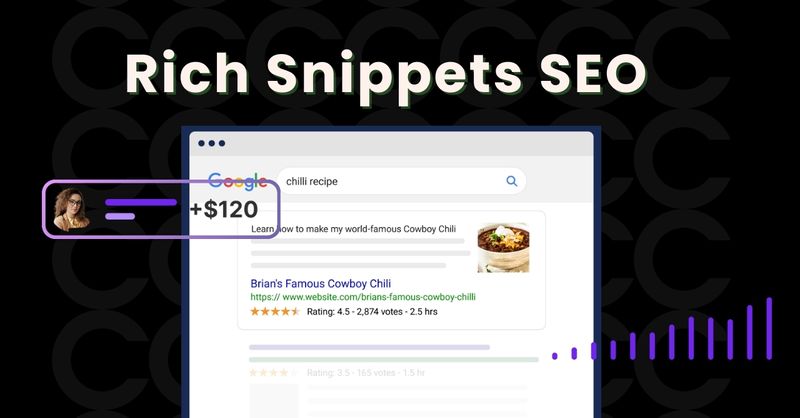Shopify and WooCommerce stand out among e-commerce platforms for building online stores. This article will make a comparative analysis between Shopify vs. WooCommerce to dig out their pros and cons.
Shopify vs. WooCommerce: An Overview
What is Shopify?
As an all-in-one eCommerce platform, Shopify is completely hosted, so you won’t have to undertake any independent software installation, management, or updates. Shopify has a 16.36% market share among eCommerce websites with more than 450,000 users.
Shopify Pros & Cons
Pros of Shopify
- All-in-one eCommerce platform: Shopify provides numerous built-in features ready to use when you sign up. It is easy to start an online store, manage inventory, and collect payments on Shopify.
- Fully hosted platform: As a fully hosted platform, Shopify has a professional team of experts who offer technical aspects of managing an eCommerce site, such as web hosting, security, caching, and more. Also, it provides an SSL certificate, web hosting, and a domain name.
- Beginner-friendly: A user-friendly interface for merchants to manage product pages, sales, and inventory in an intuitive drag-and-drop interface.
- Powerful integration: Robust API to connect multiple platforms and apps and an App Store where you can purchase third-party add-ons.
- Outstanding support: Live chat, phone, email, and X customer service around the clock. If you encounter any problems, you can ask for help at any time.
Cons of Shopify
- Limited control: Merchants can only use the design tools from Shopify and choose add-ons available in its marketplace, which means you don’t have much control over everything to customize.
- High cost: The cost of Shopify may be high due to transaction fees, add-ons, and integrations that are unavoidable. Before starting the store, paying for a plan is necessary. Besides, no matter which payment method you choose, additional fees will be required. Templates and apps on Shopify are not all free.
What is WooCommerce?
WooCommerce is an open-source eCommerce plugin designed for WordPress. It is a self-hosted platform where you need to maintain updates, backups, and security by yourself. There are 3.9 million stores built with WooCommerce, and 23% occupy the top 1 million e-commerce sites.
WooCommerce Pros & Cons
WooCommerce Pros
- Full control: Due to the open-source feature of WooCommerce, merchants have full control of the whole platform. Customizing every aspect of your online store, filled with personalized customization through technical knowledge.
- Low cost: Hosting companies, such as Bluehost, cut costs for merchants with a free domain name, a free SSL certificate, and a discount on web hosting. Powering your WooCommerce store with just $2.75 per month. Besides, your bank or your payment gateway are the only entities that charge you transaction fees.
- Large-scale app store: WooCommerce Plugin Directory boasts over 59000 apps, which is quite large for you to customize your online store. Plenty of choices allow you to manage the growth of your store.
WooCommerce Cons
- Self-hosted platform: WooCommerce is a self-hosted platform that requires you to do every aspect of the online store, including obtaining all the relevant sales certificates and managing the security personally. Besides, it lacks an intuitive drag-and-drop interface.
- Extensive technical knowledge: Building an online store on WooCommerce is not an easy task unless one has extensive technical knowledge and time. Designing everything about your store costs a lot of time and energy. Therefore, WooCommerce is not friendly to beginners.
- Costs on other channels: Unlike Shopify, WooCommerce only has Facebook as a free installation channel. If you want to expand other channels, such as Amazon, TikTok, Instagram, and more, you need to pay $79 to install them to sell your products.
Shopify vs. WooCommerce: Detailed Comparison
Shopify vs. WooCommerce: Ease of Use
Shopify is a beginner-friendly platform that is fully hosted and controls all the software. Even if you have limited technical knowledge, you can build your online store and manage it with an intuitive interface.
WooCommerce has a learning curve. If you have extensive technical knowledge, you can customize a personalized online store. Or choose a hosting provider, such as Bluehost, to power your WooCommerce store.
Shopify vs. WooCommerce: Pricing
Shopify
Shopify offers three kinds of plans:
- Basic plan: $39 per month
- Shopify plan: $105 per month
- Advanced Shopify: $399 per month
The basic plan can add unlimited products, two management accounts, unlimited file storage, etc., which is enough to establish a new online store. But it doesn’t include third-party tools or additional components. In addition to the well-known third-party payment gateways, Shopify offers a payment solution that requires an additional fee of 2.9% plus 30 cents.
WooCommerce
The startup of WooCommerce requires a domain name, an SSL certificate, and a WordPress hosting host.
- Domain name: $14.99
- SSL certificate: $69.99
- Virtual server: $7.99 per month
Want to cut costs? Choose a hosting company to power your stores, such as Bluehost, which offers a free domain name, a free SSL certificate, and a discount on web hosting. These only cost $2.75 per month. Besides, WooCommerce doesn’t charge you a certain percentage fee on transactions.
Shopify vs. WooCommerce: Customization and Design
Shopify
Shopify has a lot of structural design decisions for you where all the images, fonts, and colors are set up. It provides a drag-and-drop interface and experts to help with the design, including pages, images, and paragraphs.
You can customize the store without any coding or design skills. Only by finding the theme in the theme store, such as arts, clothing, electronics, and more, can you add elements to your site by using tools like Sections Everywhere, Shopify app embeds, and more.
WooCommerce
WooCommerce is an open-source platform, which means you have full control over changing code and content. After being modified and programmed to fit specific needs, plugins, extensions, and themes can be utilized to customize the appearance of your website.
Altering themes from the original appearance and modifying the layout, feel, and color of the links. The simplest method is to jump right in and start editing code.
Shopify vs. WooCommerce: SEO
Shopify has a range of SEO plugins in its app store, such as SEO Booster. Use SEO apps to scan your store, fix problems, automatically generate specification tags, and add them to the page. It is also available to add descriptions and titles to your images, products, and pages.
WooCommerce is built using code optimized for SEO. It can help you customize your URLs to help search engine users find your pages more easily.
Shopify vs. WooCommerce: Extensions & Apps
Extensions and apps in Shopify are built-in, manifested as orders, products, customers, and other columns in the menu. These are useful for those who require quick and frequent actions.
In WooCommerce Extensions, 849 extensions can help grow your business. The following will introduce two frequently used extensions.
- WooPayments: The only payment method that works with WooCommerce. Accept local payments and credit/debit cards without any setup or monthly costs, which is quite convenient.
- WooCommerce Google Analytics: It is free to integrate with WooCommerce, with which you can better understand your customers and boost sales.
Shopify vs. WooCommerce: Hosting and Security
Shopify is a fully hosted platform. It is in charge of handling any security breaches and making sure your site is safe from hackers. In addition, Shopify can provide guarantees for protecting user payments and personal information privacy.
As a self-hosted platform, installing plugins and apps is necessary for WooCommerce to handle backups, updates, and security issues. To keep customer information safe, monitoring your store by yourself is a must. Alternatively, you may pay for a hosting provider that offers security concerns.
Conclusion
Shopify is a beginner-friendly hosted platform, suited for merchants with limited technical knowledge to build a branding store. WooCommerce, a self-hosted platform, allows experienced merchants to customize their online stores.
The choice of eCommerce platform depends on technical knowledge and the type of business. Choose the most suitable platform for your business development after learning about Shopify and WooCommerce.
If you have any questions or would like to gain a deep understanding of e-commerce, please log in to Channelwill to learn more solutions and strategies.
FAQs About Shopify vs. Woocommerce
Note: This blog was originally written in English and translated using an automated tool to make the content accessible to a global audience. We believe in sharing valuable insights with everyone and apologize for any inaccuracies. If you spot any errors, please feel free to contact us for corrections. Your feedback helps us improve and ensures the content’s value is fully realized.







